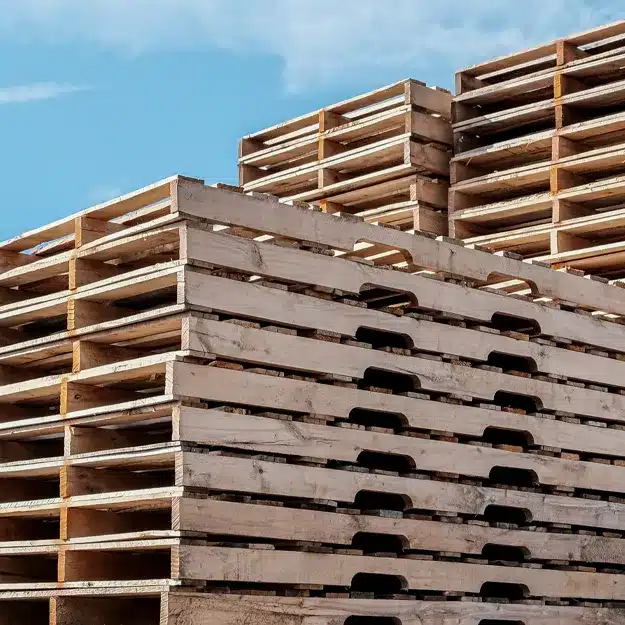Pallet Storage Solutions: The Backbone of Modern Warehousing
In today's fast-paced environment, productivity and organization are essential in the field of warehousing and logistics. As businesses strive to optimize their operations, one key component has surfaced as a game changer: the pallet system. Such basic yet efficient tools serve as the foundation of modern storage solutions, providing a dependable means for shipping goods while maximizing the utilization of space within warehouses.
Wooden pallets, in particular, have stood the test of time, offering durability and versatility that many sectors rely on. Their ability to securely pile and transport products not only improves the flow of distribution but also enhances overall productivity. By implementing pallets in tulsa , businesses can guarantee that their storage areas run smoothly, allowing for easy access to stock and ultimately driving success in an ever more competitive market.
Summary of Wooden Pallets
Wooden pallets have long been a crucial part in the transportation and warehousing industry. Their construction, typically with a flat structure with a set of slats, allows for the optimal manipulation, keeping, and transportation of products. Made from strong lumber, wooden pallets are designed of carrying substantial weight, making them ideal for a variety of items, from industrial materials to food items.
One of the primary pros of wooden pallets is their flexibility. They can be used in different environments, including distribution centers, retail backrooms, and plant operations. Their natural properties allow for proper airflow, which is important in stopping humidity accumulation for certain types of products. Furthermore, they can be conveniently mended if broken, extending their lifespan and making them a cost-effective selection for many businesses.
Sustainability is another key aspect of timber pallets. As long as they are ethically obtained, these pallets are regarded as an green option because they can be reused after their initial use. This aligns with the growing emphasis on sustainable methods in the logistics chain, as organizations increasingly strive for ways to lower their ecological footprint while keeping efficiency.
Benefits of Using Wooden Pallets
Wooden pallets are known for their durability and toughness, making them a trustworthy choice for moving goods. Their structural integrity allows them to carry heavy loads, which is necessary in a warehouse environment. Lumber pallets can withstand rough handling during loading and unloading processes, making sure that products stay safe and intact throughout their route.
Another significant benefit of timber pallets is their affordability. Compared to other types of pallets, lumber versions often come at a reduced initial purchase price. Additionally, they have a relatively long lifespan when properly maintained, which can lead to lower replacement costs over time. This affordability makes lumber pallets a sensible option for businesses looking to enhance their shipping and warehousing budgets.

Furthermore, lumber pallets are an environmentally option, as they are decomposable and can be reused after their lifespan. Many businesses commit to sustainability practices, and using lumber pallets aligns with these goals. By selecting lumber pallets, organizations not only benefit from their functional advantages but also contribute to eco-friendly practices in their logistics processes.
Sustainability in Pallet Production
The transition towards eco-friendly practices in pallet production is growing momentum as businesses progressively acknowledge the environmental impact of their operations. Wooden pallets, made from sustainable resources, provide a more eco-friendly alternative to plastic and metal pallets. The ability to source timber from sustainably managed forests ensures that the production of wooden pallets can conform with a dedication to reducing carbon footprints and preserving natural ecosystems.
Repurposing is another crucial aspect of sustainability in wooden pallet production. Many pallets are utilized multiple times before being decommissioned, significantly minimizing waste. Additionally, when wooden pallets do reach the end of their life cycle, they can be converted into new products, thus completing the loop in the production process. This not only conserves resources but also diminishes the amount of waste sent to landfills.
Lastly, manufacturers are concentrating on improving the efficiency of the production processes. Innovations in milling technology and production techniques have led to less waste generation during the manufacturing of wooden pallets. Companies are investing in sustainable adhesives and finishes, further enhancing the sustainable profile of these key materials. By emphasizing sustainability, the pallet industry not only meets the growing consumer demand for environmentally responsible products but also plays a crucial role in the broader movement towards sustainable logistics and supply chain management.